- Home
- Blake Crouch
Snowbound Page 3
Snowbound Read online
Page 3
The boy said, “What’s wrong with her?”
Javier smiled. “It’s a personal matter, son.” He stepped between them and gently lifted Rachael’s head off the door, kissing her cheek as he did. “Let’s go back to sleep now, honey.” Rachael moaned, fighting him with everything she had, which wasn’t anything. He opened the door, raised the window, shut the door. When he turned back around, the boy and his father were still standing there. The window lowered again.
Rachael said, “Help me,” and groaned loudly enough for everyone to hear.
“What’s going on here?” the boy’s father asked.
Javier sighed, looked down for a moment, studying an oil stain on the concrete.
“What’s going on,” he said finally, “is that my wife is addicted to heroin. She’s loaded right now. This far”—he held his thumb and forefinger an inch apart—“from a lethal overdose. I’m driving her to a detox program in Salt Lake.”
“Oh, I’m sorry. That must be so difficult.”
“It is. I can only take it a day at a time.”
“We’re sorry to have disturbed her. Come on, Donnie.”
“But she asked for help, Dad.”
Javier squatted down, stared at the boy.
He’d already identified all of the exterior surveillance cameras.
“I want you to remember this night always,” he said. “Because that”—he jerked his thumb back toward the window as Rachael banged her arm against the side of the door—“is what drugs can do to you.”
“God bless,” the boy’s father said, and he took his son by the shoulders and guided him back toward a minivan parked on the far side of the gas pumps.
Javier climbed behind the steering wheel of the Escalade. He looked at Rachael, who was slumped forward into the dash.
“Do you have any idea what you just did?” he said.
Inside the minivan, Rick Carter was distributing the Starbucks beverages to his wife and children. He had a long night of driving ahead of him, and with a little luck and no delays, they’d arrive in Albuquerque some time tomorrow afternoon.
He’d just swallowed his first sip when he heard a knock at his window.
He turned, saw the man from the Escalade standing there, felt a small knot blossom in his stomach. For half a second, he debated just putting the car into gear and pulling away.
“What do you think he wants?” his wife asked.
“Guess we’ll find out.” He lowered his window several inches. “May I help you?”
Javier glanced at the children in the backseat, at the man’s pretty wife. The car smelled of Starbucks.
“Do you have a cell phone with you?” Javier asked.
“Yeah, do you need to—”
“Have you called nine one one?”
“Um, no, why would—”
“You’re sure?”
“Look, I don’t understand what you’re—”
Javier jerked the door open and shot the man in the face, fired two quick bursts into the backseat to silence the screaming, and stared at the woman, who’d crushed her recycled cup in her left hand, the burning chai steaming off her fist.
“Enjoying your iced, skinny, venti, ten-pump chai latte, hold the whip?”
He shot her in the throat and shut the door.
EIGHT
They didn’t speak on the short ride to the Pima County Sheriff’s Department, and the building was practically deserted when they arrived. Swicegood led Will past the unattended reception desk, down a hallway, and stopped in front of a door with stenciled white letters that read INTERVIEW 1. Inside were a small table, three chairs, and a tape recorder. A video camera angled down from one of the corners in the ceiling, the lens pointed at the table.
Swicegood said, “Get you some water? Coffee?”
“I just want to get this over with and get back to my daughter.”
“Sure.” Swicegood eased down into a chair across from Will, tossed a thin file on the table. Will was sobering up fast, his heart beating wildly in his chest. “I’m going to record this,” Swicegood said, starting the tape recorder. “You’re aware of your rights?”
“Of course I am.” Swicegood went through them anyway, and when he’d finished, Will said, “I waive those rights.”
Swicegood leaned forward. “You’re an officer of the court, correct?”
“You know I am.”
Swicegood smiled. “I wonder if you could just clear something up for me. Your wife never came home last night, correct?”
“That’s right.”
“You said she was working at a clinic in Sonoyta.”
“Yeah.”
“What time was she due back?”
“Between ten and ten-thirty.”
“Okay, so here’s my question. At what point does a loving husband become concerned when his wife doesn’t come home?”
“I don’t understand what—”
“When she’s an hour late?”
“Look—”
“Two? Three? Four hours?”
“Okay, I see where you’re going—”
“I suppose for you, it’s somewhere beyond the six hour-mark, but we’ll never know, because you never called nine one one, did you?”
“Would you let me explain?”
“Please do.”
“I was supposed to do closing arguments at a trial this morning. I was up late last night working on them.”
“How late?”
“I fell asleep after ten, at my desk. When I woke up, it was four. I went looking for her in the house. I was horrified. Highway Patrol showed up before I had a chance to call nine one one.”
Swicegood inched closer. “Will, I’ve been a detective going on thirty years now. And crimes? They’re always emotional. You’ve represented some of the lowlifes I’ve put away, and you know that in the heat of the moment, when rage and adrenaline take over, criminals do stupid, stupid things. So I just have one question for you. Did you make any mistakes?”
“I don’t know what you’re—”
“You think you did it perfectly, don’t you?”
“Excuse me?”
“You’ve got a million-point-five life-insurance policy on your wife.”
“My daughter has cystic fibrosis. If something were to—”
“I’m sorry to hear that, but still, quite a chunk of change. How was your marriage, Will?”
“Good. Great.”
“Really? Because I spoke with the next-door neighbors this evening. The Tomlins told me you two put on quite a show on your back porch several nights ago. Shouting, swearing, the works.”
“You’ve never had a fight with your wife? Congratulations.”
“What was it about? The fight.”
“Money.”
“Money.”
“Things are tight. You have any idea what health insurance costs for someone like my daughter, who has a terminal disease? It can stress a marriage.”
“Well, it won’t be a problem anymore, will it?”
“What?”
“Money.”
Swicegood got up without a word, turned off the tape recorder, left the room. When the door closed, Will looked at his watch: 10:47 P.M. His hands shook. His throat closed off.
He’s trying to pin this on you. You could lose your wife and daughter. His eyes ran over as it hit him—Devi could become an orphan. What broke him more than anything, even the prospect of prison and what would happen to someone like him on the inside, was the possibility that he wouldn’t be there for his daughter when the disease finally claimed her. The reality that Devlin would probably die within the next five years was something he looked square in the eye every day. But what he imagined as he sat in that interview room was a dismal morning several years in the future at the maximum-security facility in Florence. A guard would walk down the long corridor to his cell, rouse him, tell him through the bars that his daughter had passed away in the night. He couldn’t fathom anything worse than that. Devi is not d
ying alone. You cannot let that happen. She is your purpose. Your heart.
The door to the interview room opened. Swicegood sat down across from Will, set a steaming Styrofoam cup of coffee on the table.
He said, “Before we continue, let me say this. This is my job. I operate on instinct. Go where it says go. That’s what I’m doing right now. If you didn’t have anything to do with this, I am so, so sorry. All right, back to business.”
He started the recorder, seemed softer, calmer. Will straightened himself in the chair.
“Look at me, Will.” Everything faded into a distorted darkness except for Swicegood’s eyes. They worked like magnets on Will’s, holding his gaze, his focus, with such intensity that it hurt him to blink. “Somewhere inside of you,” the detective said, “you want to tell me the truth. Been doing this a long time. I’ve seen it in many pairs of eyes, and I see it in yours.” His voice had dropped in pitch and evened out into a soothing monotone that might have lulled Will toward sleep were it not for those blue magnets. “Do you know how good it would feel to just say it, Will? The relief? You know how much easier it would make things for you and your daughter? You’re young. You talk to me now, we might have some wiggle room with the DA.” Will felt the gravitational force of the detective’s eyes trying to coax something out of him. The air buzzed with Swicegood’s desire to hear it, and Will suddenly understood how a person could make a false confession. Anything to make that buzzing stop. “But once I’ve got a body, Will, it’s over for you. Life. Or maybe they strap you to the execution table in Florence, put a needle in your arm. I hope you buried her deep, because the coyotes will find her. Sniff out the rot. Dig her up. And someone will stumble across the bones, and that’ll be that. But I don’t need the body. You know why? Because everyone knows she’s dead. And the little secret about juries? About society? They want closure. Wrongs righted. Threads tied up. People like you swept away into prison, out of sight, so they don’t have to think about depravity while they’re tucking their little ones into bed at night. You want to take a chance on a jury? You want to stand there on verdict day, your knees quaking, your life, your daughter’s, in the hands of twelve strangers who might be willing to trade reasonable doubt for closure? You up for that, Will?”
Will stood up, trembling with rage. He didn’t know if his wife was alive or dead, and this man was accusing him of her murder.
“I didn’t kill my wife, and I don’t know where any of this is coming from. You charging me, Teddy?”
“Where’d you bury her?”
“Are you charging me?”
Swicegood cleared his throat. “I’ll be talking to the DA first thing in the—”
“Then I’m done here. Am I free to go?”
Swicegood chewed his bottom lip. “For the moment.”
“Take me home right now. I don’t want my daughter waking up and not finding me there.”
Swicegood stopped the recorder. When he pushed his chair back, the Styrofoam cup tipped over, black coffee spilling across the table, falling in a thin dark stream onto the floor.
NINE
Will whispered into his daughter’s ear, “Wake up, Devi.” She stirred, turned away from him. He sat her up in bed. In the blue glow of the night-light, he watched her eyes open slowly.
She looked around the room, then looked at her father. “Where’s Mom?”
“She isn’t here, honey. Now listen, this is important. We’re gonna get you dressed now.”
“But it isn’t morning yet.”
“I know. We’re going on a special trip.”
“Where?”
“No more questions.”
In the darkness, Will helped his daughter dress.
“I’m going to carry you,” he said. “I need you to be very quiet. Don’t make a sound.”
He picked her up, walked to the bedroom door, and slowly pulled it open. The hallway was dark, quiet. He crept down it, heard Rachael’s mother snoring in the guest room.
Rachael’s sister, Elise, was asleep on the sofa in the den. The creak of the front door opening made her shift, but she didn’t wake.
Three A.M is one of the few comfortable hours in Ajo in the summertime, a cool, fleeting reprieve. The Beamer’s trunk was already packed with suitcases. Will put Devlin in the front seat, buckled her in. He climbed behind the wheel, shifted into neutral, let the car roll silently to the end of the driveway before shoving the key into the ignition.
“Where are we going, Daddy?” Will looked at his daughter, shook his head in disbelief at all that had changed in twenty-four hours, at how quickly, when the wrong stars align, it all comes apart. You will not die alone.
“I don’t know yet,” he said. And he turned the key and put the car into gear, driving slowly and without headlights through the subdivision.
The highway north out of Ajo was empty and shining in the moonlight. Aside from his wallet and a suitcase of clothes, he’d taken only one other thing—Rachael’s college sweatshirt.
They would not see their home again.
TEN
Two days later, Rachael awoke on a small, hard mattress. She sat up in a tiny room, barely the size of a walk-in closet, and illuminated by only a single bare lightbulb that swung from the ceiling.
Her head pounded and her mouth was dry, but she felt alert again.
The walls and the floor were covered in thick yellow foam. She saw five jugs of water in a corner, and beside them, a box filled with bags of potato chips, apples, candy bars, and packs of crackers. She heard a humming sound beyond the soundproofed walls.
She stood up, found it difficult to keep her balance, as if the floor were shifting beneath her. She looked at the foam walls again and thought, I’ve been committed. I imagined the kidnapping. The crowbar through the window. I’ve gone mad.
Rachael grabbed a jug of water and carried it back over to the mattress. She sat down and took a long drink, wondering if they were watching her right now.
But if I’m in the asylum, why am I still wearing this black suit?
There came a sudden blast that sounded vaguely like a foghorn. It blew once more, and as she considered it, there was something about the constant humming that unnerved her, and the way this place shifted beneath her. She looked up at the ceiling. No soundproofing foam there. Just shiny metal. And the dimensions of the room suddenly made perfect sense. So did the subtle rocking movement, the humming, the low drone, the horn. This isn’t a psych ward. I’m in the trailer of an eighteen-wheeler.
She wept, and her body shook with tremors.
Ghosts Present
ELEVEN
The man who was now Joe Foster floored the old Chevy down the hill into town. It was mid-October, the Colorado sky blue-screen blue, fresh snow gleaming above twelve thousand feet in the La Platas, the aspen and cottonwoods turning gold across the foothills. Five miles west, the profile of Mesa Verde shimmered in the Friday-afternoon sunlight. He could see the glint of cars crawling south on the high road that snaked through the park.
He drove into the small town of Mancos, pulled his pickup over to the curb, and cut the engine. It was still a few minutes shy of 3:00 P.M. and so quiet inside the truck, he could hear the trees chattering around him. A gold aspen leaf fell on the windshield wiper, twitched for a moment until a breeze pushed it up the glass and airborne again.
She would have liked this little town, he thought.
He spotted his daughter moving with the throng of students down the stone steps of the K–12 school. She was walking with two friends, a backpack slung over her shoulder, caught up in some breathless adolescent debate. The group of girls stepped off the sidewalk into the grass and formed a tight circle. Making plans, he imagined. Promising to call one another. Propagating silly rumors.
He watched his daughter through the cracked windshield. He could have watched her all afternoon. The truth was, he’d never expected her to reach her sixteenth year. For a long time, he’d dedicated himself to preparing for the worst-possi
ble outcome, including plans to end himself when she was gone. But then something had happened. Or actually, not happened. She hadn’t died. She got sick several times a year. She’d been scary sick twice, but she always bounced back. The cocktail of meds and the chest physical therapy were working, and every day she was healthy felt like a sentence commuted, an execution stayed.
Now she was coming toward the truck, but as he slipped the key into the ignition, a woman intercepted his daughter on the sidewalk.
He sat up. His daughter had stopped, and she was talking to a tall woman in a navy skirt, white blouse, the matching jacket folded over her arm. His daughter shook her head. He couldn’t hear what they were saying. He reached to open the door, but his daughter was on her own again, moving quickly toward the truck, the woman walking in the opposite direction. She pulled open the squeaky door and climbed inside.
“Hey, baby girl.” She’d picked out a new name, but he rarely said it, called her “baby girl” or “sweetie,” or nothing.
“Hey, Dad.”
“Who was that woman you were just talking to?”
“She didn’t say.”
“What’d she want?”
“Asked me my name, if I lived around here.”
He cranked the engine, the noisy truck now vibrating beneath them.
“Why’d she want to know that?”
“I don’t know. I blew her off, told her I had to go. You think she’s a cop?”
“I don’t know.”
“Can I drive home?”
“Not today, honey.” He shifted into drive and pulled out into the street, cruising slowly past the school, looking for the woman who’d approached his daughter. “What color hair did she have?”
“Brown. She was pretty.” The upperclassmen were flooding out of the building now. They were taller. It made it difficult to spot the woman. “What’s wrong, Dad?”
She wasn’t there. Just a bunch of kids.
“You know we have to be very careful,” he said.

 Abandon
Abandon Break You
Break You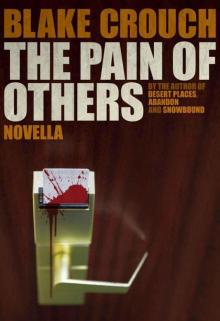 The Pain of Others
The Pain of Others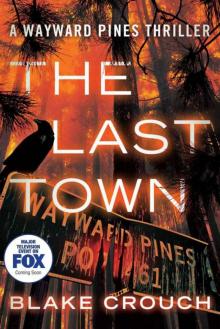 The Last Town
The Last Town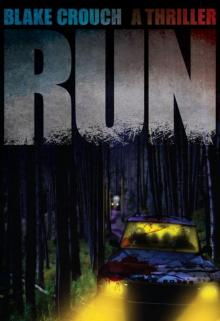 Run
Run Grab
Grab Four Live Rounds
Four Live Rounds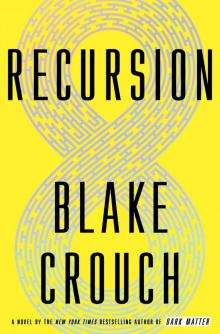 Recursion
Recursion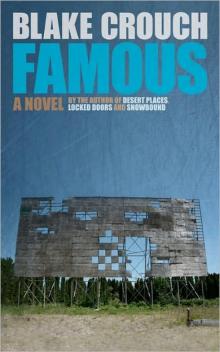 LUMINOUS BLUE: A Novel of Warped Celebrity
LUMINOUS BLUE: A Novel of Warped Celebrity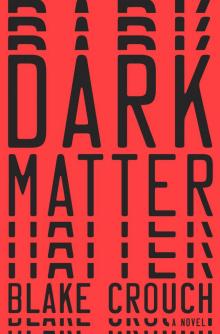 Dark Matter
Dark Matter Desert Places
Desert Places Thicker Than Blood - the Complete Andrew Z. Thomas Series
Thicker Than Blood - the Complete Andrew Z. Thomas Series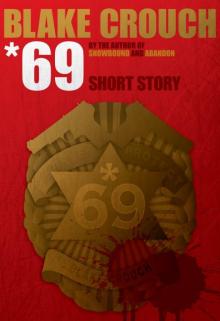 *69
*69 Locked Doors
Locked Doors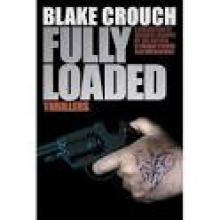 Fully Loaded Thrillers
Fully Loaded Thrillers![Summer Frost [Forward Collection] Read online](http://i1.bookreadfree.com/02/summer_frost_forward_collection_preview.jpg) Summer Frost [Forward Collection]
Summer Frost [Forward Collection]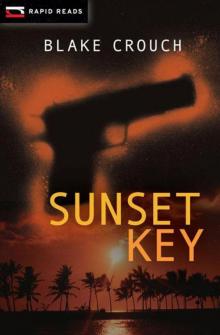 Sunset Key
Sunset Key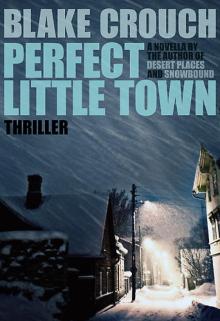 Perfect Little Town
Perfect Little Town Confidence Girl
Confidence Girl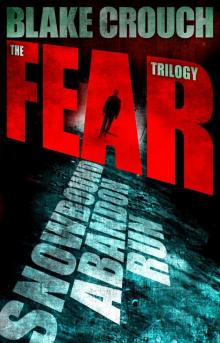 The Fear Trilogy
The Fear Trilogy Grab ldm-3
Grab ldm-3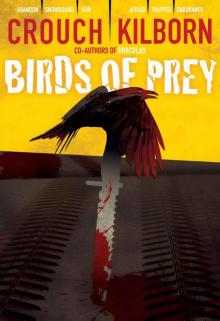 BIRDS OF PREY - A Psycho Thriller
BIRDS OF PREY - A Psycho Thriller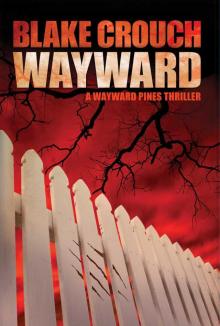 Wayward (The Wayward Pines Series, Book Two)
Wayward (The Wayward Pines Series, Book Two) Hunting Season: A Love Story
Hunting Season: A Love Story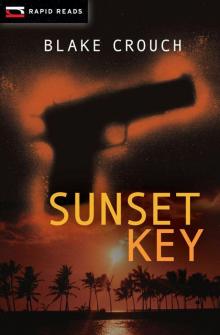 Sunset Key (Rapid Reads)
Sunset Key (Rapid Reads) Desert Places: a Novel of Terror
Desert Places: a Novel of Terror Grab (Letty Dobesh #3)
Grab (Letty Dobesh #3)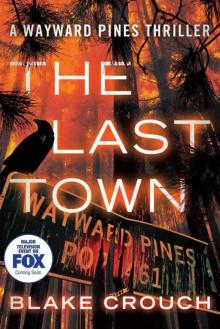 The Last Town (The Wayward Pines Trilogy 3)
The Last Town (The Wayward Pines Trilogy 3) LOCKED DOORS: A Novel of Terror (Andrew Z. Thomas Thriller)
LOCKED DOORS: A Novel of Terror (Andrew Z. Thomas Thriller) BREAK YOU: A Novella of Terror (Prequel to Stirred) (Andrew Z. Thomas/Luther Kite)
BREAK YOU: A Novella of Terror (Prequel to Stirred) (Andrew Z. Thomas/Luther Kite)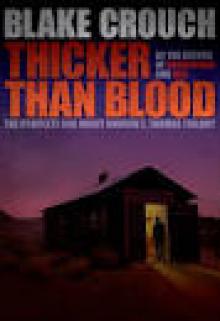 Thicker Than Blood - The Complete Andrew Z. Thomas Trilogy
Thicker Than Blood - The Complete Andrew Z. Thomas Trilogy Bad Girl
Bad Girl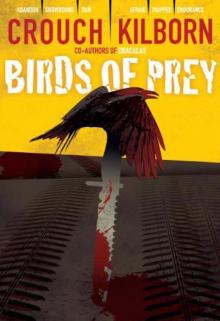 Birds of Prey
Birds of Prey SERIAL KILLERS UNCUT - The Complete Psycho Thriller (The Complete Epic)
SERIAL KILLERS UNCUT - The Complete Psycho Thriller (The Complete Epic) Wayward (The Wayward Pines Trilogy, Book 2)
Wayward (The Wayward Pines Trilogy, Book 2)